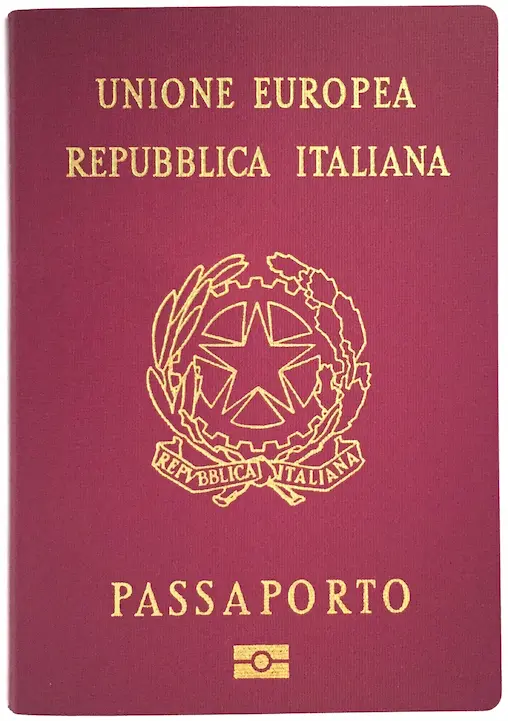Italy Citizenship and Naturalization

Grade:
A+Global Rank: 3
Visa-free Access
160 out of 195 countries
Access to Major Destinations
- European Union
- United Kingdom
- Canada
- United States
- China
- Russia
- Japan
| Category | Details |
|---|---|
Citizenship by Descent |
|
Naturalizations |
|
Spouse Naturalization |
|
Birthright Citizenship |
|
Economic Citizenship (Investment) |
|
Other Provisions |
|
Citizenship by Exception |
|
Taxation Overview
Personal Tax Overview: Italy 🇮🇹
Key information about personal taxation in Italy
Tax Residency
Normal rule: 183 days
Special rule: No information
Special Tax Regime
Lump sum tax regime
Dividend Tax
26%
Dividend tax exemption applies if the dividends are received from a company where the recipient holds at least 10% of the shares for more than 12 months.
Capital Gains Tax
26%
Capital gains in Italy are generally taxed at a rate of 26% on the profit from the sale of assets such as stocks, bonds, and real estate.
Property Rental Income
26%
Property rental income in Italy is taxed either under the Cedolare Secca flat tax regime at a rate of 21% (or 26% for multiple properties) or through the progressive income tax system, with rates ranging from 23% to 43%. Non-residents are taxed at a flat rate of 26%.
Property Tax
Yes
Italy imposes a property tax called IMU (Imposta Municipale Unica), which is levied on real estate properties. The tax rate typically ranges from 0.4% to 0.76% of the property's cadastral value, depending on the municipality. Rates can vary depending on the property type and its use (e.g., residential, commercial).
Inheritance Tax
Yes
Italy imposes an inheritance tax with rates ranging from 4% to 8%, depending on the relationship between the deceased and the beneficiary, with exemptions for spouses and direct descendants up to €1 million per heir.
Wealth Tax
No
Italy does not impose a general wealth tax, but it levies specific taxes on certain assets, including a 0.2% annual tax (IVAFE) on financial assets held abroad and a 1.06% tax (IVIE) on real estate properties abroad. There are exemptions and deductions available, and Italy offers a special tax regime for new residents, which may exempt them from declaring foreign assets or paying wealth taxes on them under certain conditions.
VAT
22%
The standard VAT rate in Italy is 22%. Additionally, there are reduced rates of 10%, 5%, and a super-reduced rate of 4% for specific goods and services. The 4% rate applies to certain foodstuffs, books, and medical equipment for disabled persons. The 5% rate applies to specific health services, while the 10% rate applies to items like restaurant services and some foodstuffs.
CFC Laws
Yes
CFC (Controlled Foreign Corporation) laws in Italy are designed to prevent individuals from avoiding domestic taxes by shifting income to foreign subsidiaries in low-tax jurisdictions. These rules apply if an Italian tax resident controls a foreign company, and the company’s income is subject to low taxation.



